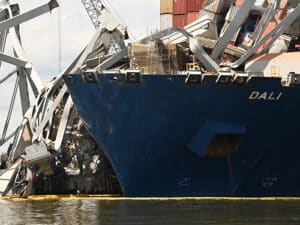
IMO’s MSC issues guidelines on private security guards
Written by IMO’s Maritime Safety Committee (MSC), which met in London May 11-20, has approved an MSC Circular providing interim guidance to shipowners, ship operators, and shipmasters on the use of privately contracted armed security personnel on board ships in the High Risk piracy area off the coast of Somalia and in the Gulf of Aden and the wider Indian Ocean, and Interim recommendations for flag States on the use of privately contracted armed security personnel on board ships in the High Risk Area. Both sets of guidance are aimed at addressing the complex issue of the employment of private, armed security on board ships.
IMO’s Maritime Safety Committee (MSC), which met in London May 11-20, has approved an MSC Circular providing interim guidance to shipowners, ship operators, and shipmasters on the use of privately contracted armed security personnel on board ships in the High Risk piracy area off the coast of Somalia and in the Gulf of Aden and the wider Indian Ocean, and Interim recommendations for flag States on the use of privately contracted armed security personnel on board ships in the High Risk Area. Both sets of guidance are aimed at addressing the complex issue of the employment of private, armed security on board ships.
The guidance to shipowners notes that flag state jurisdiction and any laws and regulations imposed by the flag state concerning the use of private security companies apply to their vessels. port and coastal states’ laws may also apply to such vessels.
The guidance notes that the use of private armed security personnel should not be considered an alternative to the Best Management Practices to Deter Piracy off the Coast of Somalia and in the Arabian Sea area (BMP) and other protective measures.
Placing armed guards on board a vessel should only be considered after a risk assessment has been carried out. It is also important to involve the Master in the decision making process. The guidance includes sections on risk assessment, selection criteria, insurance cover, command and control, management and use of weapons and ammunition at all times when on board and rules for the use of force as agreed between the shipowner, the private maritime security company and the Master.
Flag states are recommended to have in place a policy on whether or not the use of private security contractors will be authorized and, if so, under which conditions. A flag state should take into account the possible escalation of violence which could result from the use of firearms and carriage of armed personnel on board ships when deciding on its policy. The recommendations are not intended to endorse or institutionalize the use of private security contractors and do not address all the legal issues that might be associated with their use onboard ships.
An intersessional meeting of the Working Group on Maritime Security and Piracy will meet in the week commencing September 12, 2011 to develop recommendations to governments on the use of private security contractors; review the interim guidance and generally push these sorts of issues along the IMO pipeline.
The MSC also adopted an MSC resolution on Implementation of Best Management Practice guidance, urging better implementation of these important measures.
The resolution strongly urges all those concerned to take action to ensure that as a minimum and as recommended in the Best Management Practices: ships’ masters receive updated information before and during sailing through the defined High Risk Area; ships register with the Maritime Security Centre Horn of Africa and report to United Kingdom Maritime Trade Operations (UKMTO) Dubai; and ships effectively implement all recommended preventive, evasive and defensive measures.
The MSC also agreed guidelines to assist in the investigation of the crimes of piracy and armed robbery against ships, which are intended to be used in conjunction with resolution A.1025(26) Code of Practice for the Investigation of the Crimes of Piracy and Armed Robbery against Ships. The guidelines are intended to assist an investigator to collect evidence, including forensic evidence, to support the submission of written reports which may assist in the subsequent identification, arrest and prosecution of the pirates that held the vessel and crew captive. Formats for crew statements and logging of evidence are included, as well as guidelines on recovery and packaging of exhibits such as blood, clothing and weapons.
May 23, 2011





Leave a Reply
You must be logged in to post a comment.